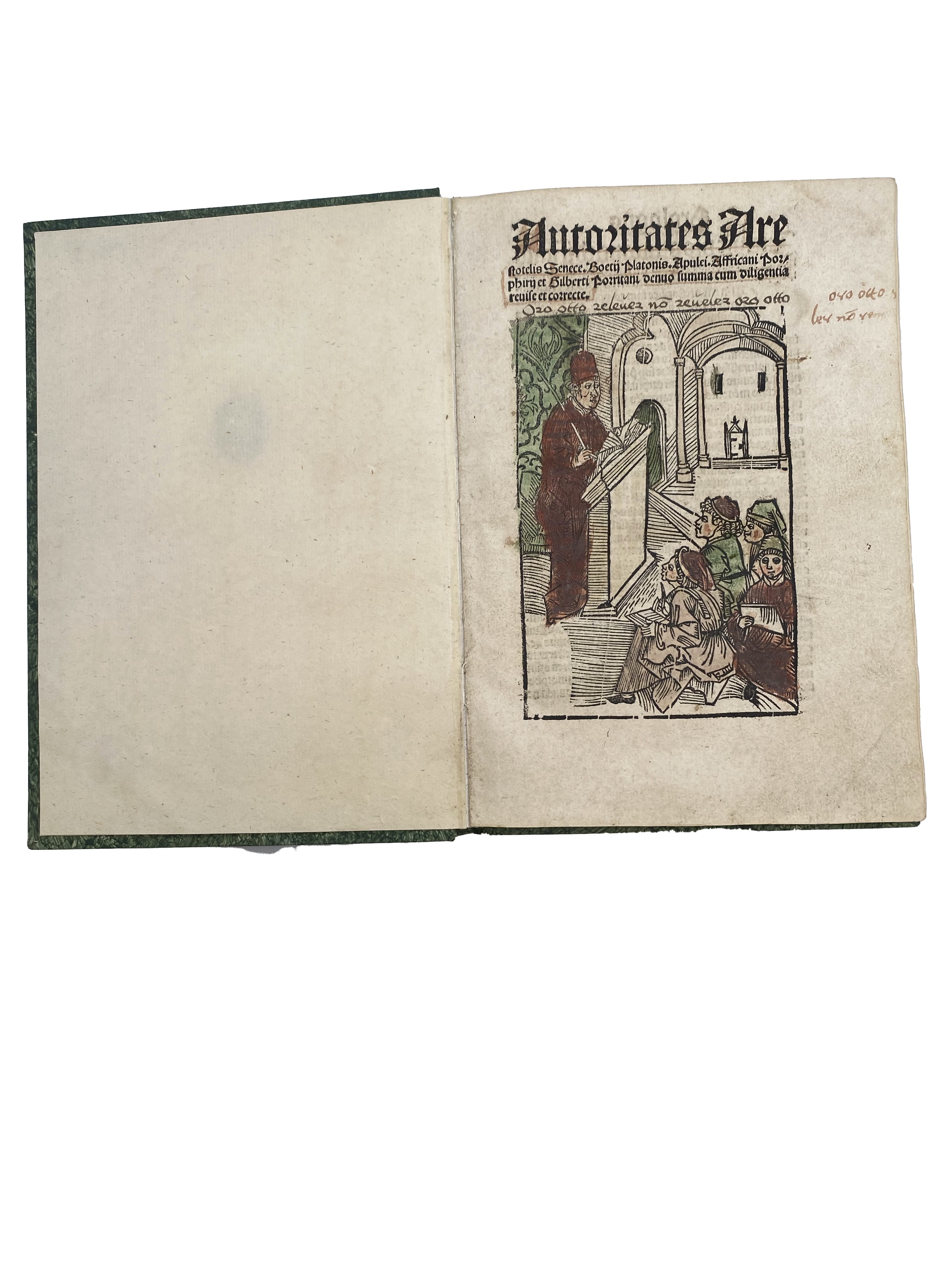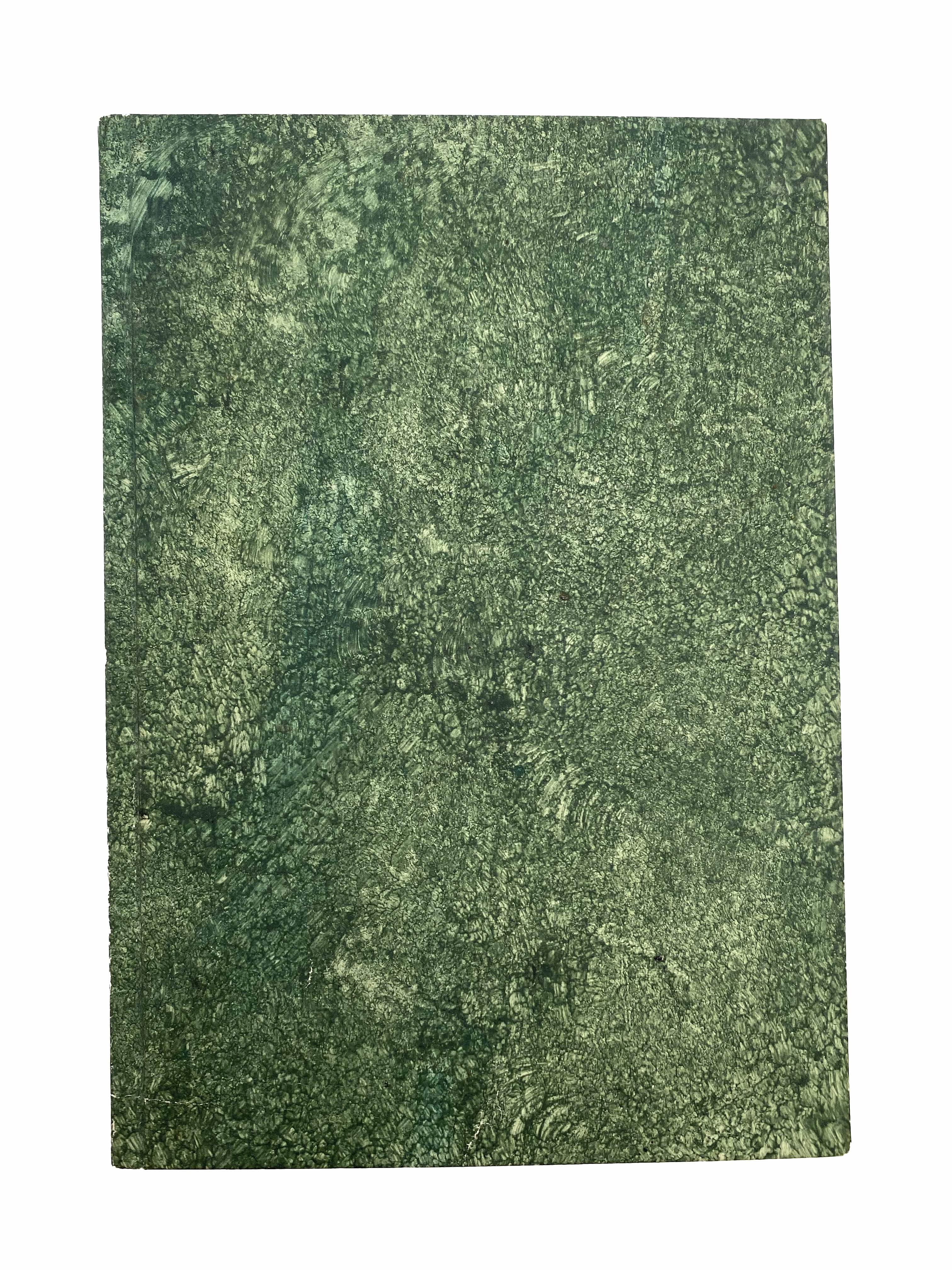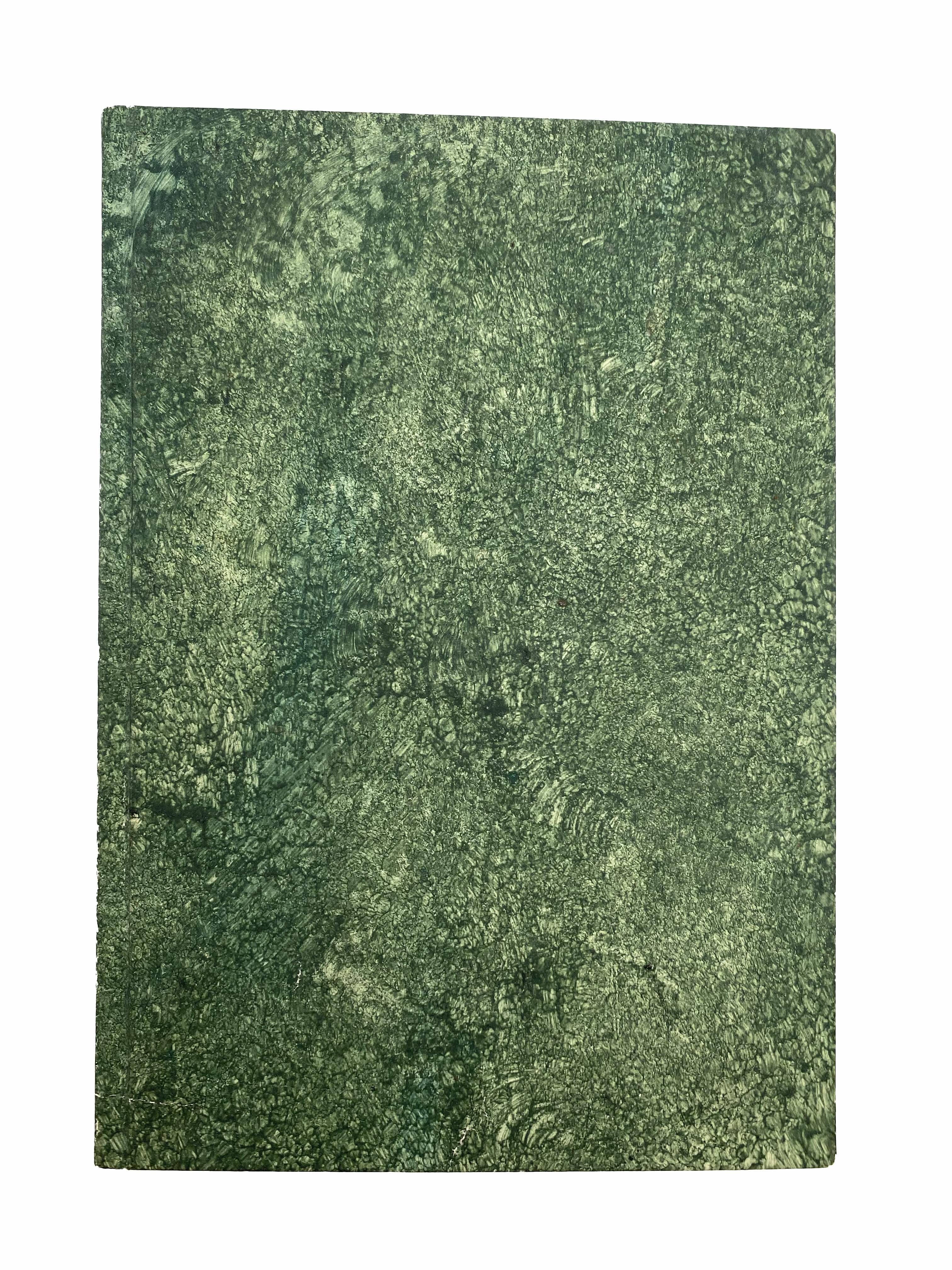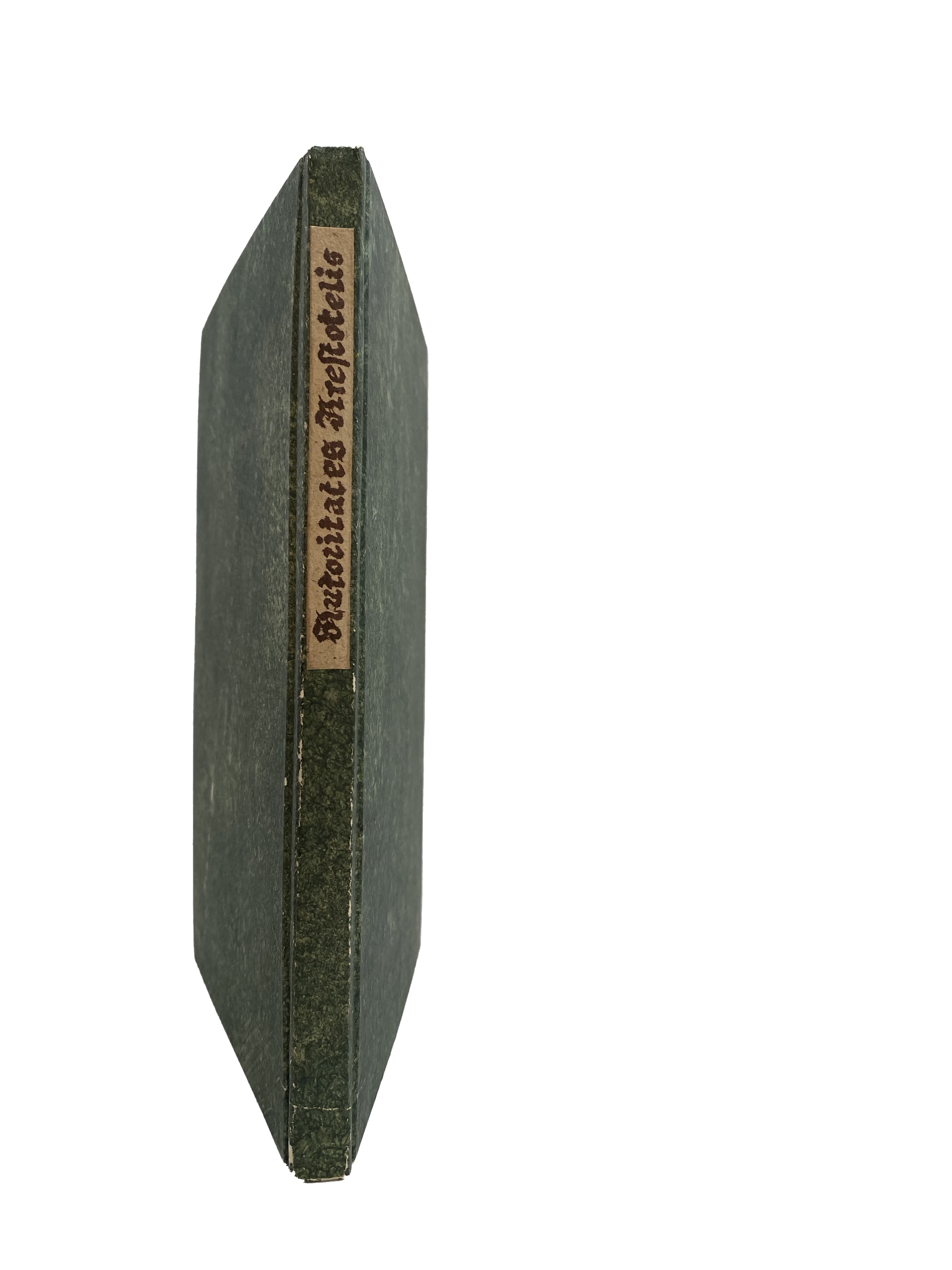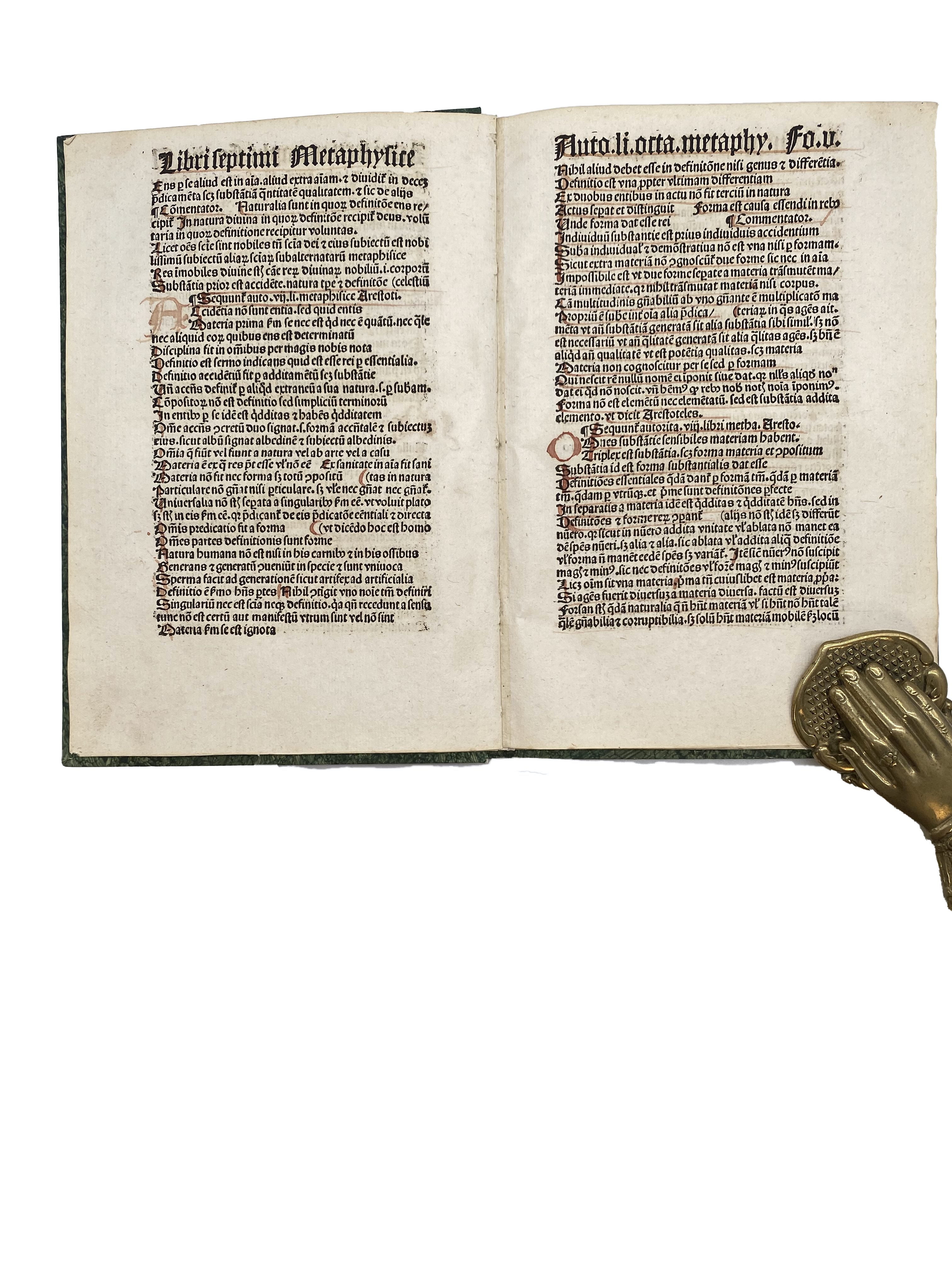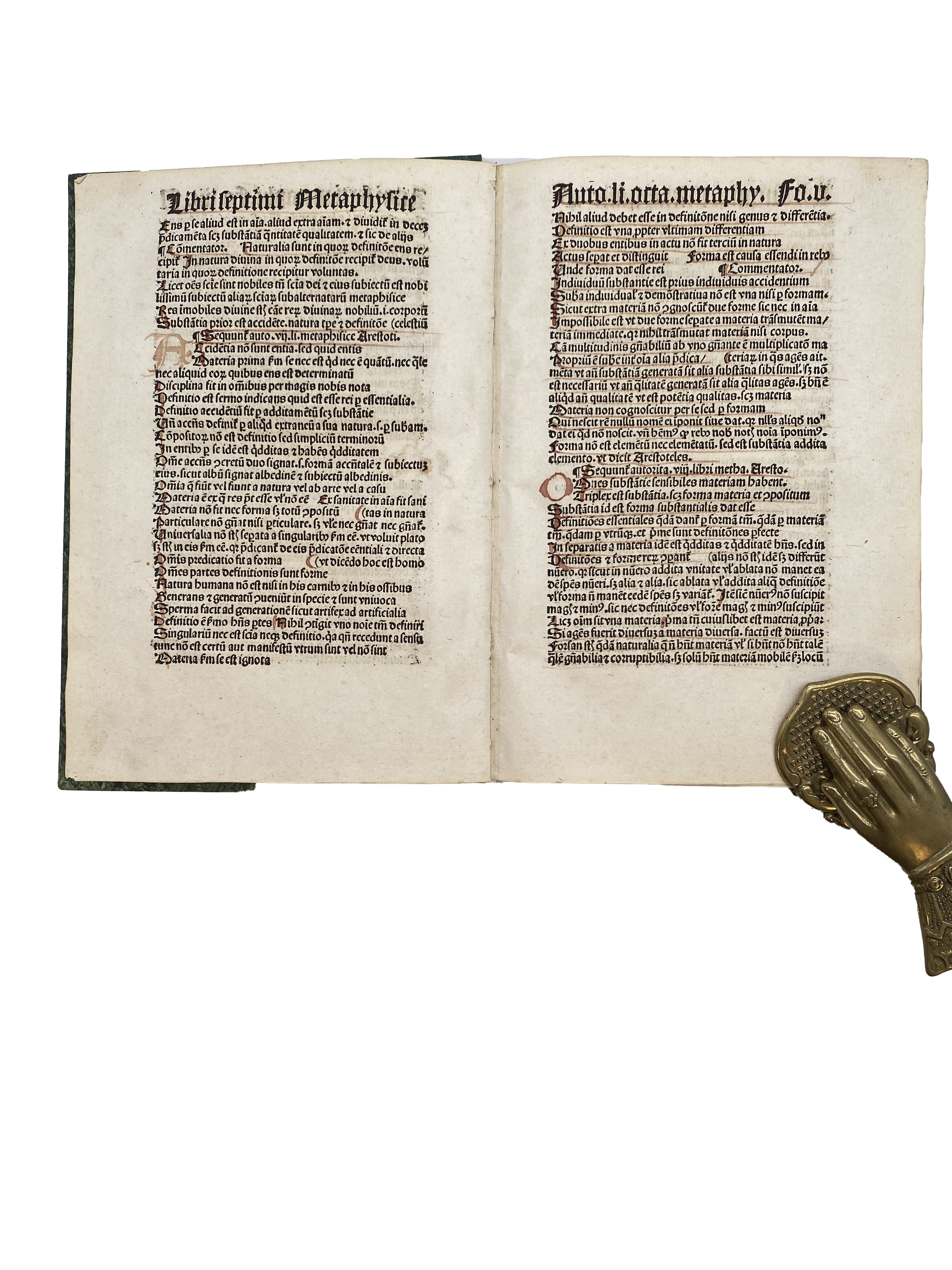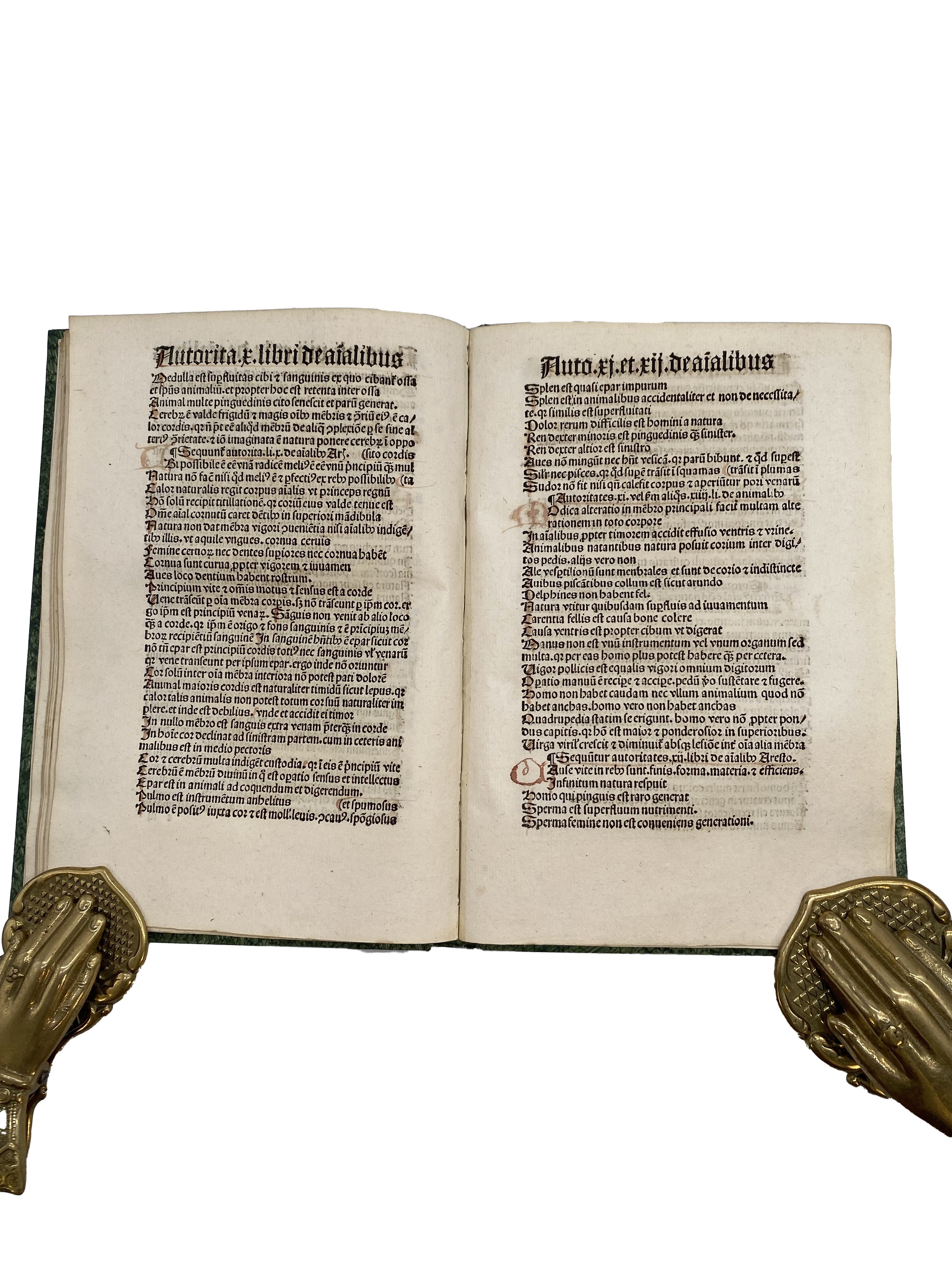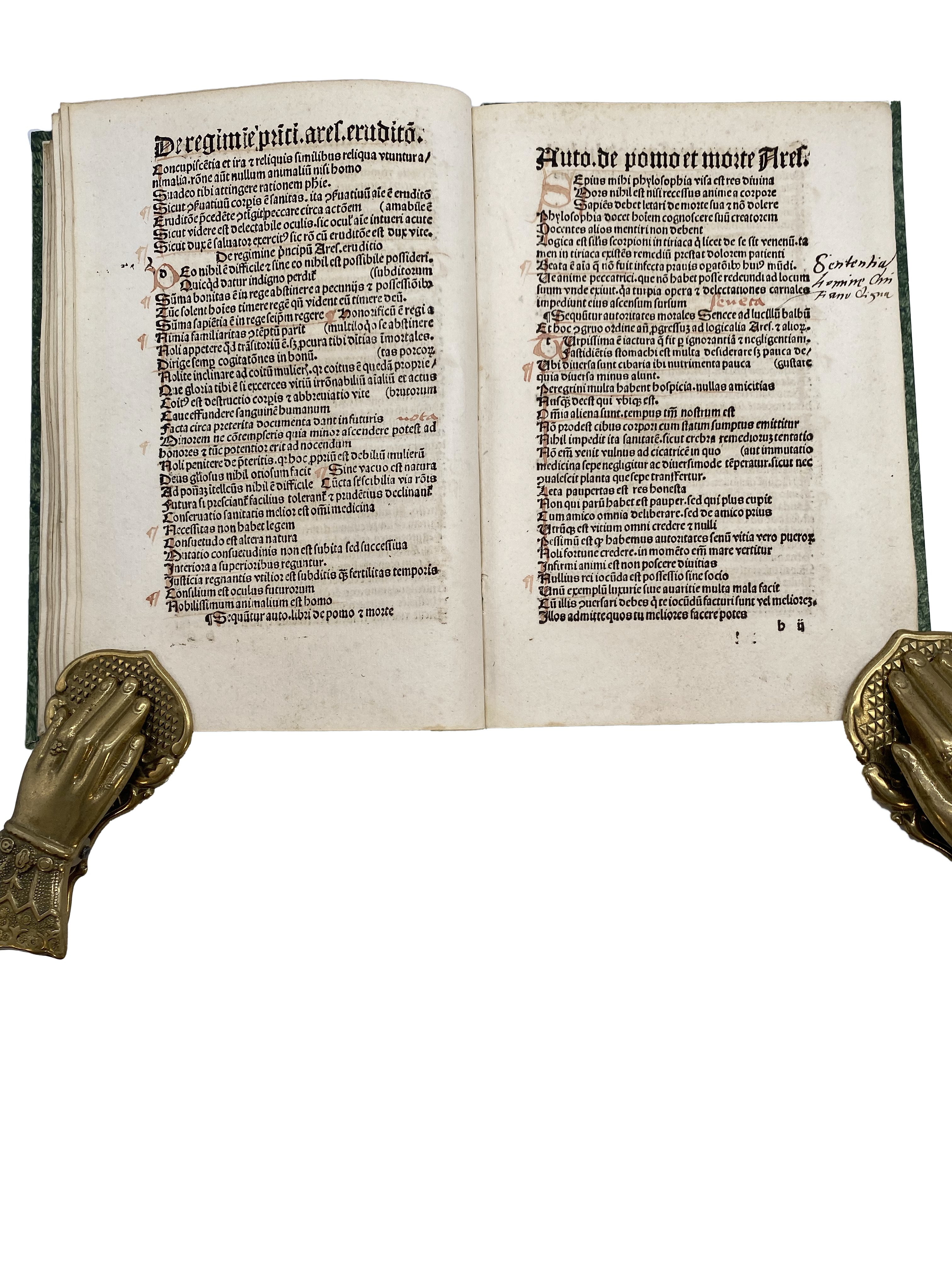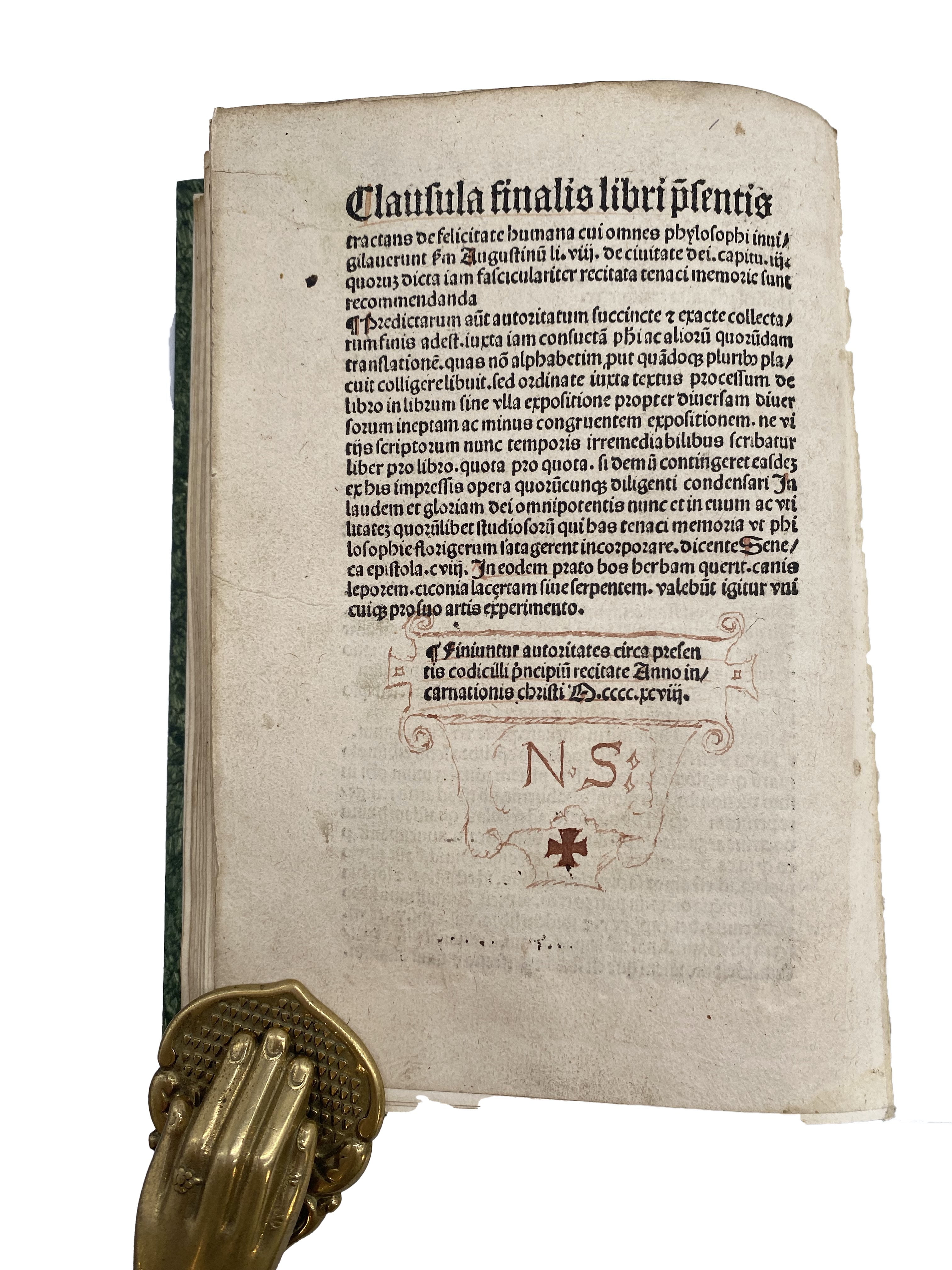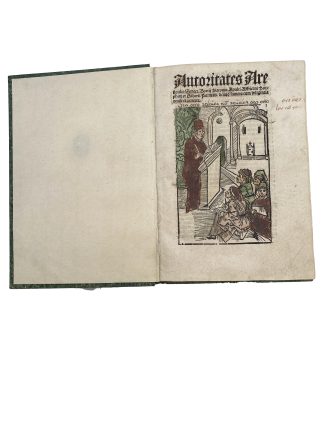FONTE, Johannes da.
EARLY RUBRICATED ARISTOTLE
Auctoritates Arestotelis (…)
Cologne, Heinrich Quentell, 1498£8,500.00
4to, ff. 53 (unnumbered, missing final blank). Gothic letter, rubricated initials. Charming ‘accipies’ woodcut (depicting a master and four pupils) on t-p, with contemporary colouring. T-p very slightly dusty, light age yellowing, a few ink smudges to blank margins of 2 ll, rare contemporary marginalia in Latin and German, in red and brown ink, different hands, red ink underlinings. A very good copy in modern paperboards. C20 bookplate of the Bibliotheca Philosophica Hermetica (Amsterdam) to front pastedown, contemporary ms. “oro otto releuer no(n) reueler oro otto” to t-p, early monogram ‘N.S:’ and small drawing of a cross in red ink cartouche to verso of last.
Rare incunable edition of this popular Medieval anthology, first printed c. 1480. ‘Auctoritates aristotelis’ (also known as ‘Parvi Flores’) is a florilegium, that is a compendium of important extracts (auctoritates = authoritative passages) from other works – in this case, classical and medieval philosophical treatises. It was composed between 1267 and 1325 by Johannes de Fonte (fl. 1300), lector of theology at the Franciscan convent of Montpellier. This compilation, which enjoyed great success in Germany, was used for education in universities and monasteries. It contains excerpts from Aristotle and sayings drawn from Plato, Porphyry, Seneca, Apuleius and Boethius. The first section focuses on logical works, the second is concerned with natural philosophy, metaphysics and ethics.
A very interesting and rather unusual feature of this volume is that the rubricator, who coloured the title page, decorated all the initials and provided useful paragraph marks, also added brief annotations in red ink. These marginalia mostly consist in single words, such as ‘nota’ or ‘considera’, pointing the attention to key passages underlined. This indicates the decorator was an interested reader with a good understanding of the text. At the end, the colophon is ornamented with a nice red-ink frame, below are the initials “N.S:”, probably those of the reader-rubricator.
The manuscript inscription “oro otto releuer no(n) reueler oro otto” on the title page in black and red ink in two different hands, is a very curious and rare palindrome (the first two words should be inverted). Interestingly, we were able to find only three other occurrences of this sentence, and all three are manuscript inscriptions appearing on 15th century codexes that belonged to Otto Ebner (C. Vindobonensis palatinus 3332, C. Latinus Monacensis 18513b, 6948). Ebner (fl. 1453-1484, d. after 1491) was chaplain at the Heilig-Geist-Spital in Munich, writer, and owner of a small library. On a codex he inscribed: “Otto oro relever, non reveler oro Otto, Otto tenet mappam madidam mappam tenet Otto”. It appears that he enjoyed palindromes containing his name – which is also a palindrome – and used to write them on his books. It is highly probable that volume also belonged to him.
From the important library of the Dutch businessman and book collector Joost R. Ritman (b. 1941), Bibliotheca Philosophica Hermetica, Amsterdam.
USTC 739985; ISTC ia01196000; GW 02827; Goff A1196; BMC C15 Vol I, p. 289. On Ebner see: R. Sprandel, Zweisprachige Geschichtsschreibung…(1993). USTC, ISTC and Worldcat record only two copies of this edition in the US (Trinity College and Univ. of Pennsylvania).In stock


